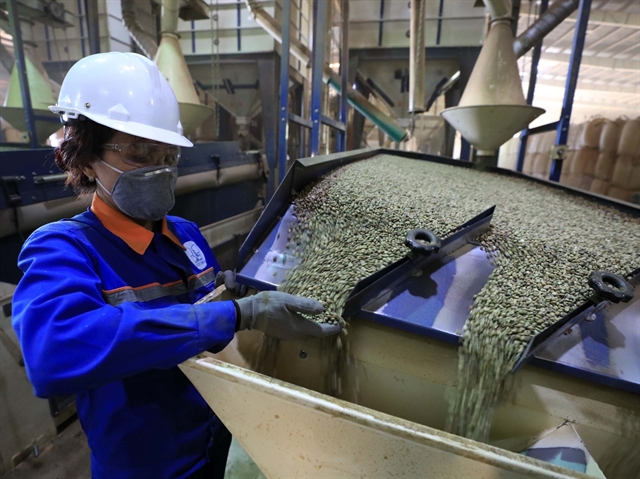 Economy
Economy


|
| Two people use a digital payment app in a local market in the northern province of Hà Giang. — Photo Mobile Money |
HÀ NỘI — Significant progress has been made in recent years to encourage the proliferation of cashless payments in remote and isolated parts of the country, according to the State Bank of Vietnam (SBV).
Several policies and programmes implemented by the SBV have allowed residents greater access to the banking system. Since 2015, the central bank has given the green light to several remote payment companies collaborating with commercial banks to bring classless payments to remote and isolated communities.
Deputy head of Agribank's customer services Đinh Quang Dân said there had been an upward trend in the number of new accounts created in the island and mountainous regions across the country, signalling a change in customers' behaviours and warmer attitude towards digital banking.
Mobile Money has played an important role in developing Việt Nam's cashless payment system, among many other financial solutions. The service has expanded to 72,000 POSs across the country, according to an SBV report.
More than half were located in rural, remote, isolated regions. During the last nine months of 2022, Mobile Money served some 14 million customers with a total transaction amount of VNĐ167 trillion or US$7 billion.
"It has been tremendous progress, given our starting point several years back," said Phạm Anh Tuấn, head of SBV's financial transaction department.
By the end of September, there were 2.34 million accounts registered under Mobile Money, with 1.62 million in rural, remote, isolated communities. In addition, the service has expanded to cover 14,500 vendors across the country and handled 15 million transactions with a total value of VNĐ950 billion.
Trương Quang Việt, deputy director-general of Viettel, one of the country's leading telecommunication companies, said by the end of the year, Viettel expected to have close to 2 million customers, with 60 per cent of them located in rural, remote and isolated communities.
"There is still a lot of room to grow, especially given our extensive telecommunication network coverage," he said.
Nguyễn Hoàng Long, deputy director-general of the National Payment Corporation of Vietnam (NAPAS), said the corporation had been working closely with more than 50 commercial banks to tighten collaboration, share information and support a common payment ecosystem.
According to industry experts, the largest obstacle so far has been the communities' reluctance to pick up new technologies and heavily entrenched cash-based spending habits.
A recent survey by the SBV indicated most people living in rural, remote and isolated communities showed little confidence in cashless payment security, with many saying they did not find the current services well-designed for everyday use.
Experts urged local governments to establish additional digital markets for popular commodities to help residents adopt digital payment faster.
Meanwhile, the SBV has been working with the Ministry of Public Security and the Ministry of Labour - Invalids and Social Affairs to expand NAPAS to cover all welfare services for Vietnamese residents. — VNS

.jpg)


